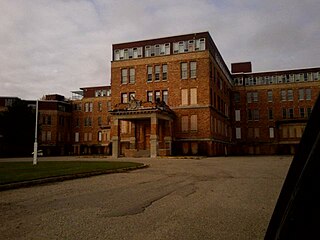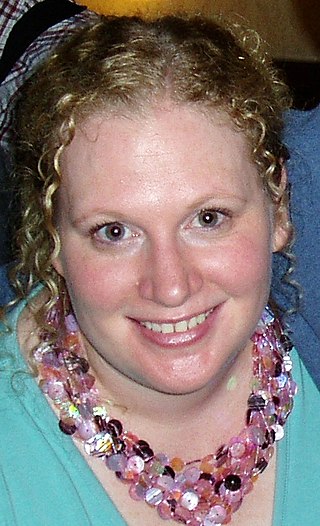Related Research Articles
Humphry Fortescue Osmond was an English psychiatrist who expatriated to Canada,then moved to work in the United States. He is known for inventing the word psychedelic and for his research into interesting and useful applications for psychedelic drugs. Osmond also explored aspects of the psychology of social environments,in particular how they influenced welfare or recovery in mental institutions.

Sylvia Olga Fedoruk was a Canadian physicist,medical physicist,curler and the 17th Lieutenant Governor of Saskatchewan.
Lillian Eva Quan Dyck,is a retired Canadian senator from Saskatchewan. A member of the Cree Gordon First Nation in Saskatchewan,and a first generation Chinese Canadian,she is the first female First Nations senator and first Canadian-born senator of Chinese descent.

Abram Hoffer was a Canadian biochemist,physician,and psychiatrist known for his "adrenochrome hypothesis" of schizoaffective disorders. According to Hoffer,megavitamin therapy and other nutritional interventions are potentially effective treatments for cancer and schizophrenia. Hoffer was also involved in studies of LSD as an experimental therapy for alcoholism and the discovery that high-dose niacin can be used to treat high cholesterol and other dyslipidemias. Hoffer's ideas about megavitamin therapy to treat mental illness are not accepted by the medical community.

Souris Valley Mental Health Hospital also called the Souris Valley Extended Care Centre was a public hospital in Weyburn,Saskatchewan. Originally called the Saskatchewan Hospital when opened in 1921,it was the largest building in The British Commonwealth and the most expensive building erected in Saskatchewan at that time. In its beginning the hospital housed 607 patients. Weyburn's hospital was considered on the cutting edge of experimental treatments for people with mental health issues. The facility had a reputation of leading the way in therapeutic programming. At its peak,the facility was home to approximately 2,500 patients. The hospital was an early example of Socio-architecture.
Thaddeus Eugene Weckowicz was a Polish-Canadian social scientist,Professor Emeritus of Psychiatry,Psychology,and Theoretical Psychology at the University of Alberta,and Research Associate,Center for Systems Research,University of Alberta,known for his research in chronic schizophrenics since the 1950s.
Ruth Cuthand D.F.A. is a Canadian artist of Plains Cree and Scots ancestry. She is considered an influential feminist artist of the Canadian prairies,and is lauded for her interpretation of racism and colonialism. Her work challenges mainstream perspectives on colonialism and the relationships between settlers and Indigenous people in a practice marked by political invective,humour,and a deliberate crudeness of style.
Alison Norlen is a visual artist who is known for large-scale drawing and sculpture installation. Her work is in private collections across the United States and Canada and in the public collections of the National Gallery of Canada,The Mackenzie Art Gallery,the Confederation Centre Art Gallery,The Rooms Provincial Art Gallery,the Winnipeg Art Gallery,the Mendel Art Gallery,the Manitoba Art Council,The Canada Council Art Bank,and the Saskatchewan Arts Board.
The Cannabinoid Research Initiative of Saskatchewan (CRIS) was founded in 2017 as an interdisciplinary research team of clinician researchers (medical and veterinary),basic scientists,and social scientists. CRIS aims to obtain scientific evidence about the application of Cannabinoids and Medical cannabis to humans and animals,for health,disease and disorders. The team was initially based at the University of Saskatchewan,in Saskatoon,Saskatchewan,Canada but includes researchers based at the University of Regina and University of Alberta. A strategic management executive committee coordinates activities and develops research opportunities. The sections of CRIS include:Analytical Evaluations,Human Clinical Studies,Biomedical studies,Veterinary Sciences,Knowledge Translation and Studies of Cannabinoids and Society. CRIS members participate in the Canadian Consortium for the Investigation of Cannabinoids,and the International Cannabinoid Research Society.
The University of Saskatchewan Graduate Students' Association is the university-wide representative body for graduate students at the University of Saskatchewan,located in Saskatoon,Saskatchewan,Canada. It was established in 1985 as an office inside the University of Saskatchewan Students' Union (USSU),but it became an independent body only in 1992. Its head office is located at 1337 College Drive in the Emmanuel and St. Chad. The College of Emmanuel and St. Chad was designed by Webster,Forrester and Scott of Saskatoon and constructed in 1965 and 1966.

The College of Engineering is a faculty at the University of Saskatchewan in Saskatoon,Saskatchewan,Canada.
Jennifer Wynne Webber is a Canadian writer,actor,dramaturge,journalist,and television producer currently living and working on Vancouver Island,British Columbia. Her most well-known work to date is her play With Glowing Hearts:How Ordinary Women Worked Together to Change the World about Canadian miners' wives in Kirkland Lake,Ontario who were galvanized into becoming labour activists. Their role in the labour strike of 1941–1942 was crucial in changing Canadian labour laws to require employers to recognize and bargain with unions. Originally,the play was commissioned in 2016 by Elizabeth Quinlan at the University of Saskatchewan to create an original work based on the role of women in Canada's labour movement,which was one of Quinlan's areas of research.

Margaret Anne Wilson Thompson C.M. Ph.D. LL.D B.A.,was a prominent researcher in the field of genetics in Canada. She was a member of the Alberta Eugenics Board from 1960 to 1963,before joining the University of Toronto and the Hospital for Sick Children in Toronto to complete research on genetics and pediatrics. Thompson’s work earned her the Order of Canada in 1988,although her appointment remains controversial due to her role in the eugenics movement. Thompson testified about her involvement in the Eugenics Board during the Muir v. Alberta case in 1996 and was also interviewed in a documentary about the lawsuit.
Valerie Joyce Korinek is a Canadian historian. She is a professor of history at the University of Saskatchewan and a Fellow of the Royal Society of Canada. Her research focuses on Queer studies and communities.

Christy Ann Morrissey is a Canadian ecotoxicologist. She is a Professor of biology at the University of Saskatchewan and was elected to the Royal Society of Canada's College of New Scholars,Artists and Scientists.
Ingrid Jane Pickering is a geoscientist. She is a professor and Canada Research Chair in Molecular Environmental Science at the University of Saskatchewan. In 2018,Pickering was the first woman appointed Chair of the Canada Foundation for Innovation Board of Directors.

Regan Lee Mandryk is a Professor of Computer Science at the University of Saskatchewan. She specializes in Human-computer interaction.
James Burgess Waldram is a Canadian medical anthropologist. He is a Distinguished Professor in the Department of Archaeology and Anthropology at the University of Saskatchewan.
Colleen Anne Dell is a Canadian public sociologist,animal-assisted intervention practitioner,and academic. She is a Professor and Centennial Enhancement Chair in One Health &Wellness in the Department of Sociology and Associate in the School of Public Health at the University of Saskatchewan. She is most known for her research on criminal justice,mental health,substance abuse,and Indigenous peoples’health.
References
- ↑ "Dyck, Erika". id.loc.gov. Retrieved November 9, 2020.
- 1 2 "Erika Dyck". research-groups.usask.ca. Retrieved November 9, 2020.
- ↑ Cardwell, Mark (August 7, 2012). "Tripped out on the Prairies". universityaffairs.com. Archived from the original on April 17, 2020. Retrieved November 9, 2020.
- ↑ Thomson, Julia (August 31, 2005). "LSD finds new respectability". dailynews.mcmaster.ca. Retrieved November 9, 2020.
- 1 2 "Erika Dyck's Canada Research Chair renewed". artsandscience.usask.ca. 2014. Retrieved November 9, 2020.
- ↑ Scheiner, Eli Oda (January 22, 2015). "Review of Psychedelic Psychiatry: LSD on the Canadian Prairies". Transcultural Psychiatry . 52 (2): 276–279. doi:10.1177/1363461514568265. S2CID 146619989 . Retrieved November 9, 2020.
- ↑ Seigel, Maria (May 2015). "Erika Dyck, Facing Eugenics: Reproduction, Sterilization, and the Politics of Choice". Social History of Medicine . 28 (2): 412–413. doi:10.1093/shm/hkv008 . Retrieved November 9, 2020.
- ↑ "Erika Dyck, Regan Mandryk selected for new Royal Society of Canada college". artsandscience.usask.ca. 2014. Retrieved November 9, 2020.
- ↑ "Professor Erika Dyck appointed as co-editor of the McGill-Queen's/Associated Medical Services Studies in the History of Medicine, Health, and Society Series". mqup.ca. November 20, 2015. Retrieved November 9, 2020.
- ↑ Moran, James E. (2015). "New Co-Editors for the Canadian Bulletin of Medical History". cshm-schm.ca. Retrieved November 9, 2020.
- ↑ Ian Dowbiggin (Winter 2018). "Managing Madness: Weyburn Mental Hospital and the Transformation of Psychiatric Care in Canada by Erika Dyck, Alex Deighton (review)". Bulletin of the History of Medicine . 92 (4): 716–717. doi:10.1353/bhm.2018.0088. S2CID 59295708 . Retrieved November 9, 2020.
- ↑ "Erika Dyck and Alex Deighton win the Prairies Clio Prize from the Canadian Historical Association". artsandscience.usask.ca. June 6, 2018. Retrieved November 9, 2020.
- ↑ "2017 YWCA Women of Distinction nominees". artsandscience.usask.ca. April 11, 2017. Retrieved November 9, 2020.
- ↑ Atter, Heidi (May 17, 2020). "Community archives capturing life, coping strategies during pandemic in Sask". cbc.ca. Retrieved November 9, 2020.